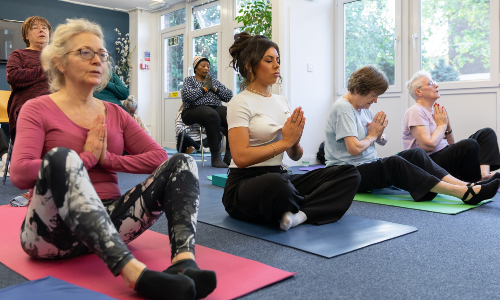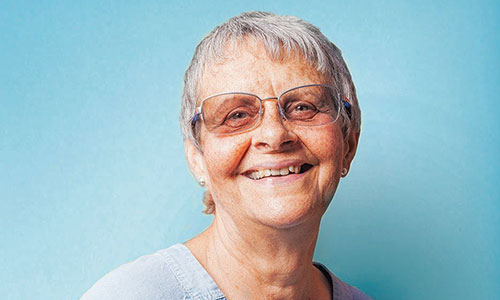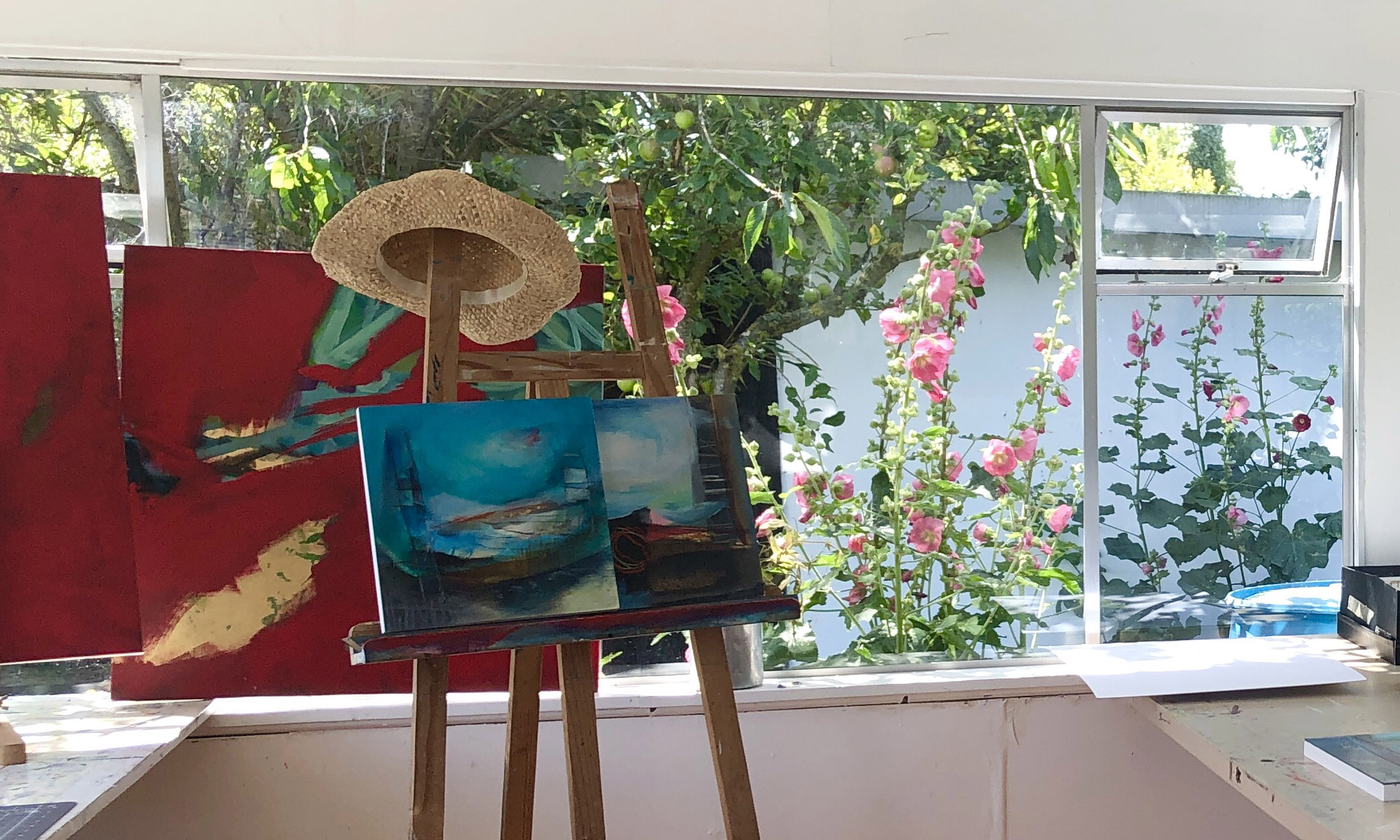According to Age UK’s recent report, Offline & Overlooked, 2.3 million (1 in 5) people aged 65 or over don’t use the internet, while 3.3 million people in the same age range don’t use a smartphone. So what happens in a world where services are increasingly going online?
The answer, if you live in west London, is to visit Age UK Hammersmith & Fulham. In a side room lined by bookshelves and with a lovely view of the garden, Gita is teaching older people about getting online.
Gita, who works as a teacher at a college, is the IT Trainer here and will teach several of these classes today. They serve to teach people digital skills that could benefit their lives each day. One-to-one assistance is provided and personalised based on the level of experience and proficiency the individual has - after Gita establishes this with an assessment when the person first joins the class.
“The individual might get an email from the GP that they don’t know how to forward,” explains Gita. “We can do it for them, but then we’ll encourage them to attend classes like this. Once they start coming to the classes, we’ll show them how to send, reply to, or forward an email.”
For me, there’s no replacement for having someone next to you, showing you how it works
Feeling cut off from your commmunity
Outside the room, at a table in the communal area of the centre, another service user is receiving some technological advice. Wendy lives in North Kensington, near Grenfell Tower. She witnessed the horrors of the fire that claimed 72 lives on 14 June 2017. The psychological and physical trauma resulted in Wendy developing Bell's Palsy in the weeks afterwards, a condition that causes temporary paralysis of the muscles of the face; and alopecia, which causes hair loss.
Wendy’s challenges have been intensified by her feelings of loneliness and isolation. Wendy started to come to Age UK Hammersmith & Fulham a few weeks ago, after a word-of-mouth recommendation. She’s not been able to access WhatsApp since November, because her phone is now too outdated to run it.
Unfortunately, the ongoing cost of living crisis means she’s been unable to buy a suitable replacement. Wendy, who lives alone, has long relied on WhatsApp to keep in touch with friends here and relatives in the Caribbean, particularly during the coronavirus pandemic.
“As you can imagine, Christmas was lonely,” explains Wendy. “People couldn’t get in touch with me, and I couldn’t get in touch with them. I was part of a community Whatsapp group in my area, which had 1,000 local people on it, which shared information on free events. Once I didn’t have access to that anymore, I felt completely cut off from my community.”
Thankfully, after Wendy explained her predicament to staff here, she was told a tablet could be made available to her, which she’s now in the process of learning how to use. This tablet donation scheme is a programme that provides technology on a loan basis to older people who wouldn’t otherwise have access to it, in order to ‘give it a go’. The application can be completed by a member of staff - in this case a lady named Elleni - on behalf of the applicant.
“When older people find themselves in situations like this, they feel stuck,” says Elleni, “so it’s important to take the time to show how technology works and can help with everyday life.”
When she was younger, Elleni studied electrical engineering, a career she couldn’t get back into after spending many years raising a family. She therefore retrained in computer maintenance and got into community work, which eventually brought her to Age UK Hammersmith & Fulham.
Wendy’s professional background is in law and once she’s grown more digitally confident she’d like to start an online service that offers legal information, as she believes too few people know and understand their rights. For now, though, she’s happy to listen and learn from Elleni, who is a calm and patient teacher, which Wendy appreciates.
“I’ve never used a tablet before, so it’s a learning curve,” says Wendy. “Someone might say, ‘You can learn how to do it on YouTube’, but you have to have a computer or a device to get to YouTube. For me, there’s no replacement for having someone next to you, showing you how it works, repeating things if you don’t understand them first time, responding to what’s happening on the screen alongside you.”
Activities and repetition
For Gita, repetition is the key. “We would get people in the class to repeat those processes seven or eight times, until those actions become second nature. They’re also encouraged to try them out at home, and come back with any challenges the attendees might experience once they return for the next class.
It’s not just about everyday tasks like emailing and booking appointments, though. There are activities that encourage attendees to go online and access the vast amount of information it offers. Regular ‘Internet Scavenger Hunts’ pose clues to the identity of a celebrity that people need to find the identity of, or questions they need to search the answers to. These are often themed around significant events in the calendar, such as International Women’s Day.
Online security is equally important, of course, as a lack of knowledge or experience online can make older people particularly vulnerable to scammers.
“We do exercises where I might deliberately show a false or suspicious email address, so that people can learn to spot them,” explains Gita. “They have to pick out the errors themselves, which can take a while, as it’s not something people are used to doing. We also look at password protection and ensuring they pick strong passwords, as there are some people coming here who will have their passwords written in notebooks or on pieces of paper.”
It's not about age - it's confidence
A patient approach to confidence
This kind of attentive teaching is also taking part back in Gita’s class, where attendees are being shown how to use the NHS app. On handouts, they’re given a list of tasks these students will be able to complete in the coming weeks, which includes installing the app, finding their nearest pharmacy, viewing their health records, and sharing information on the app via email. Each of these sections may take several weeks to complete, but it’s worth it for all concerned.
“One of these days you’ll be stuck and not be able to do anything,” says Madeleine, who attends these classes, of what would happen if she didn’t. “It helps with confidence.”
Gita agrees. “It’s not about age,” she says of the challenges being faced by older people in an increasingly online world. “It’s confidence.”
Offline and Overlooked
Age UK is campaigning to make sure everyone can access the services they need - so that being offline doesn't mean being overlooked.





